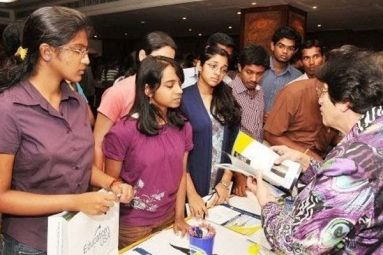
(Image source from: Freepik.com)
For decades, studying abroad has been a cherished dream for countless Indian students, opening the door to career advancement and global knowledge in search of a better future. According to the India Student Mobility Report 2023, around 1.3 million Indian students are participating in study abroad programs. According to the second edition of Oxford's Global Student Mobility Index report, the US (69%) outperforms other popular options such as the UK (54%), Canada (43%) and Australia (27%). However, Indian students wishing to study abroad face many challenges as countries enforce stricter immigration policies and increase screening of international students. Diversity of academic programs: Universities abroad have extensive academic programs that cover both traditional subjects and emerging disciplines. We also offer a range of specializations in broader disciplines, helping Indian students delve into specific areas of interest to thrive in a globalized world. Contact with the world: Students interact with people from different backgrounds and learn new languages and cultures. Exposure to different cultures will ultimately increase your confidence and strengthen your skills in relation to global standards.
Availability of Scholarships: Universities abroad offer a range of scholarship and financial aid opportunities that can cover a significant portion of your tuition costs. The most popular scholarships include merit-based scholarships, need-based scholarships, subject-based scholarships, government scholarships, and more. This gives students a global perspective while offsetting the high cost of education. Access to cutting-edge technology and innovation: Students believe that studying at universities abroad specializes in cutting-edge technology and innovation, giving them a head start in their chosen field of study. “The trend of studying abroad brings many benefits to students, such as building a global network, international recognition, increased job opportunities, etc. " he said. Evidence. Changing the visa environment. In recent years, significant changes have taken place in the visa policies of a number of key destination countries, including:
Australia: Recent changes made by the Australian government include a higher English language test score. The provisional IELTS score for graduate visas has increased from 6.0 to 6.5, and the IELTS score (or equivalent) for student visas has increased from 5.5 to 6.0. Financially, students must prove $29,710 to qualify for a student visa, a 17 percent increase from previous amounts. The actual student test replaced the actual admissions requirements.
Canada: Canada reduced the number of student visas to 360,000, down 35 percent from last year. Only spouses of international students earning a master's or doctoral degree can receive an open work permit. A student permit application now requires a confirmation letter from a Canadian province confirming the applicant's ability to accommodate.
United Kingdom: The cost of a UK visa has increased from £363 to £490, a 35% increase. The immigration medical fee has changed from £675 to £1,035. The UK has also announced that from 2024 international students will be banned from bringing family members with them while studying.
USA: The US Embassy has announced that all applicants for F, M and J student visas will be required to provide their passport information when creating their profile and planning their visa. F or M visa applicants must be enrolled in a Student and Exchange Visitor Program accredited school or program. Students applying for a J visa must be sponsored by an organization approved by the U.S. Department of State.
As Indian students cope with the dynamic changes in study visas, long-term study planning becomes an important aspect of their study journey. Students should be aware of changes to study visa requirements in order to make informed decisions about their studies. Indian students may reassess their long-term educational goals and adapt to the revised visa requirements. You can work with accredited education consultants and consultants who specialize in international student programs and can provide valuable insights. In top countries like Australia, stricter standards including increased English language requirements, valid student tests, limited visa sanctions, etc. result in higher rejection rates for Indian students and can limit their exposure. For example, Australia's short-term graduate study visa program, which comes into force on July 1, 2024, aims to tailor visa flows based on applicants' educational levels.
Complying with visa change requirements requires careful planning and proactive measures to ensure a smooth transition to an international educational institution. By staying up to date on visa requirements and accessing a valuable support network, students can effectively navigate the evolving study visa landscape and ultimately achieve their goals of global academic pursuits.










